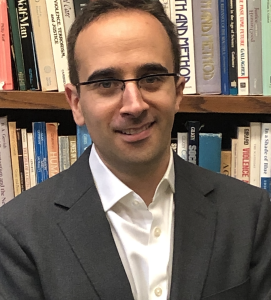Yiftach Ofek

My dissertation project, “The ‘New Jew’ of Zionist Historiography”, explores the views of three of the most influential historians of the Jewish people in the twentieth century – Yitzhak Baer, Yehezkel Kaufmann, and Gershom Scholem – on human nature, and the desired character ideal for the ‘New Jew’ that would emerge in the Land of Israel as part of the Zionist project. I suggest that their respective views were formed under the influence of two parallel currents in contemporary social thought: the broader discussions in the Jewish world on the characteristics of the modern Jew in Israel and the diaspora, and the philosophic Discourse of Man that developed primarily in Europe in the late nineteenth and early twentieth centuries in response to the so-called ‘Crisis of Humanism’.
I came to this project as a result of a deep unease with contemporary discussions about human nature and the role of religion in public life. In the early and middle decades of the twentieth century, there raged a lively and critical debate across the humanities and social sciences on whether it still made sense to speak of a universal human nature in an age of global multiculturalism, on whether we can continue adhering to religiously-informed conceptions of human nature after the ‘Death of God’, and about the challenge posed by non-Western religions to Western cultural norms. In recent decades, however, these debates seem to have all but disappeared, or at least became secondary in importance. And yet, I wondered: Have we resolved these questions satisfactorily? Or is there room to return to these earlier debates to explore what may still be learned?
The Martin Marty Center, with its long and distinguished commitment to research across disciplines and across religious traditions, offers an ideal environment in which to develop this project. As a Junior Fellow, I look forward to discussing different and perhaps even competing notions of human nature with scholars of diverse perspectives and diverse cultural traditions. In addition, I hope to take advantage of the Center’s resources to learn how to make my scholarship more relevant to the public square, and make my own contributions to the Center’s enduring reputation in bridging the divide between academic and non-academic audiences.

